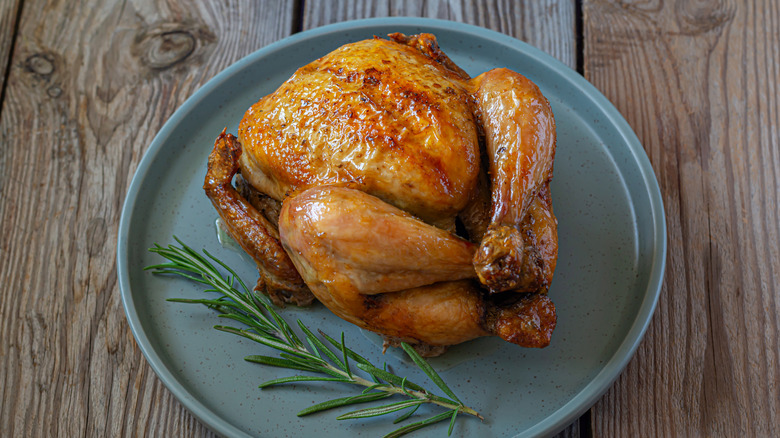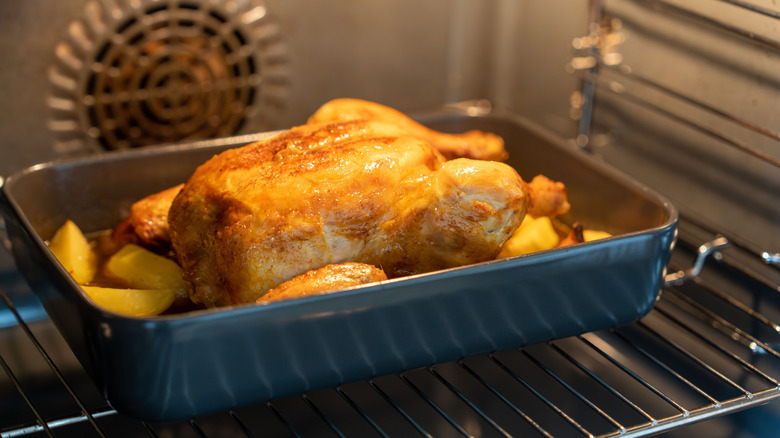The Secret To The Crispiest Roast Chicken Is ... Water?
There's nothing quite like the crackle of skin as you cut into a juicy, golden-brown roast chicken fresh out of the oven (and freshly rested, of course). While a delicious, full roast chicken can be achieved with nothing more than some salt and pepper — Ina Garten calls it the simplest dish in the world to cook — there are some ways to ensure you get the crispiest possible skin without the risk of overcooking the bird. One way, according to Maricel Gentile, cookbook author, chef, and owner of Maricel's Kitchen, is to use water.
The beauty of chef Gentile's two-step approach is how it utilizes liquid to create the most moist meat on the inside before evaporating, leaving time for the skin to crisp up. "By using steam early in the roasting process, it helps break down that fat while evenly cooking the chicken and not drying it out," she reveals. "About halfway through cooking, all water is removed, and then you finish with dry heat to crisp the skin."
According to Gentile, if you're looking for precedent, there's a clear example. Cooking chicken this way, with a steam then dry method, is similar to how Peking Duck is made because both techniques use water to render the fat, keep the meat moist, and then use a dry cooking phase to give the skin that ultra-crispiness we love," she explains.
How to use steam to create the perfect roast chicken
This wet-dry technique is so effective because it targets the biggest impediment to crispy skin: the layer of fat lurking beneath. It's crucial to render that fat out, according to chef Maricel Gentile, otherwise, you risk getting a skin that's soggy, or even worse, rubbery.
"The best is putting some water in the roasting pan, covering (for steaming), or open for a gentler cooking, and about halfway through, remove the water and the cover and allow to finish in the dry heat," Gentile advises. Caramelizing the chicken in lemon curd can take this textural experience to an even higher level, as the sugar helps add extra crispiness as they break down while the fat renders into the meat, making it even more juicy.
While you'll be using moisture strategically, it's still important to start with a dry chicken. "Either pat it down or let dry overnight in the fridge before cooking. Although you will use steam and moisture to cook, the skin itself should be dry," Gentile says, adding that forgetting to dry the skin is a common mistake for home cooks. She also recommends against spritzing or basting the bird with water as it cooks as that will only make the skin soggy. "Basting should always be with oil or butter so that it browns," she says. To take your roast chicken to the next level, try a miso glaze or marinade to add even more juiciness and flavor to complement the crispy skin.


